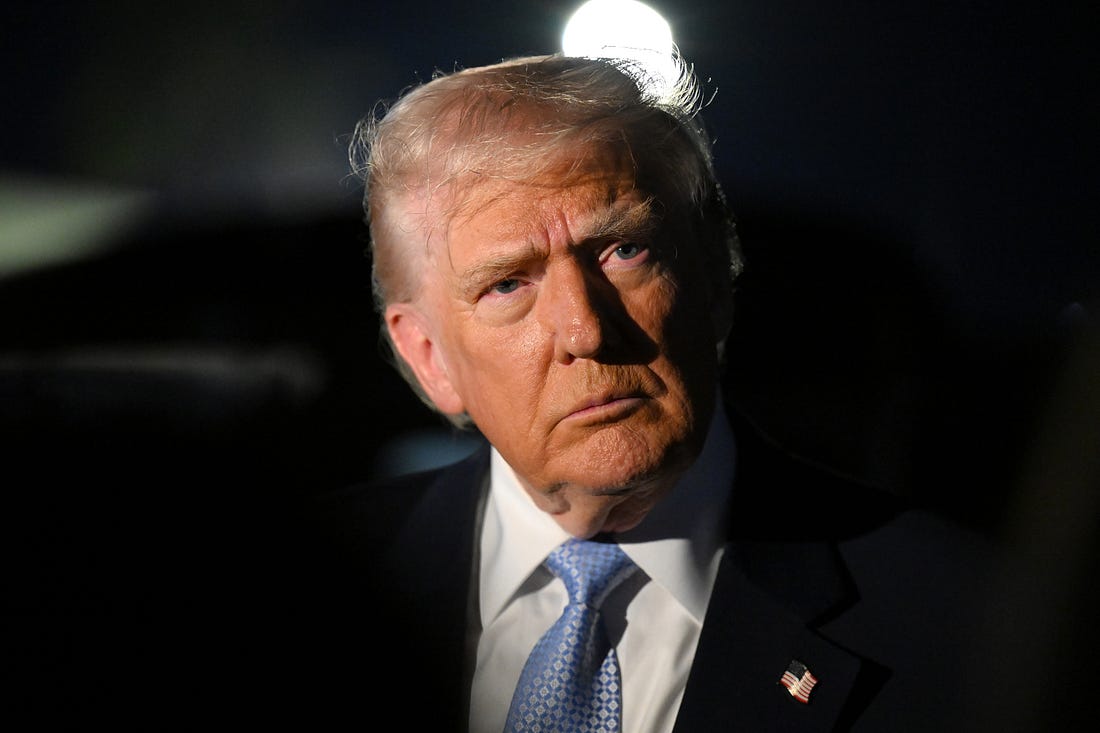|
 |
Trump Discovers, Yet Again, That Health Care Policy Is Hard
He’s floating compromise ideas on Obamacare subsidies, but Republicans in Congress aren’t interested.
THE WHITE HOUSE ON SUNDAY was gearing up to roll out a major proposal: the outlines of a prospective deal on expiring Affordable Care Act subsidies that would stop, or at least mitigate, premium hikes about to hit 20 million Americans.
The proposal, as first reported by MS NOW, was to include a two-year extension of the enhanced subsidies, along with a series of modifications (like an option to invest the subsidies in personal savings accounts) in line with conservative priorities. And the most striking thing about it was its seriousness, at least by the standards of the Trump White House. It had concrete details, the kind an administration puts on the table when it wants to craft legislation. Simply by endorsing an extension, something Trump had previously seemed to rule out, it signaled interest in courting Democratic support. Indeed, two Democratic senators who have been working on bipartisan subsidy legislation praised the effort as a constructive step.
But as a summary of the proposed White House deal circulated on email and text chains—eventually landing in my inbox—it became apparent that the president’s team had not fully checked in with a key party to the negotiations: congressional Republicans. Blowback started immediately, including from House Speaker Mike Johnson, who according to a subsequent report in the Wall Street Journal told Trump that House Republicans “don’t have an appetite” for any kind of subsidy extension.
And so, on Monday, administration officials started telling reporters that no proposal was imminent—a message that White House Press Secretary Karoline Leavitt conveyed more formally in the afternoon. “Health care is a topic of discussion that’s happening frequently and robustly inside the West Wing right now,” Leavitt told a gaggle with reporters. “The president is very focused on unveiling a health care proposal that will fix the system and bring down costs for consumers.”
The delay and the disunity, the assurance that furious work is being done behind the scenes, and the promises of a plan on the verge of being revealed—all of it will sound familiar if you have followed how Trump and Republicans have handled health care ever since the Affordable Care Act became law.¹
Over and over again, they have promised they have a better alternative. But their plans almost never materialize. And when they do they tend to be deeply unpopular, mainly because they involve rolling back protections for pre-existing conditions and leaving many millions of Americans without insurance. Republicans always find themselves stuck between their instincts to hack away at “Obamacare” and their desire not to incur the voters’ wrath.
Now a version of that dynamic is playing out yet again. The premium increases from the expiring enhanced subsidies will disproportionately affect red districts and red states, hitting core GOP constituencies like farmers and small business owners. That’s why vulnerable, so-called “frontline” House Republicans have been agitating for a deal, as has retiring Georgia congresswoman Marjorie Taylor Greene. The tentative offer the White House started circulating Sunday night was a signal that Trump recognizes the political danger of letting those subsidies lapse and is looking for a way out.
But conservative Republicans in the House have indicated they want either no extension or one that includes dramatic changes to the Affordable Care Act, up to and including provisions—like rolling back pre-existing condition rules—that could honestly be described as a partial repeal. Meanwhile, no deal can become law without passing the Senate, where Republicans will need multiple Democratic votes unless they are prepared to nuke the filibuster.
A deft administration sizing up this situation—and motivated by Trump’s truly dismal poll numbers—might be able to find its way through all this, especially if it were willing to engage in some old-fashioned triangulation. It’s not that hard to imagine a compromise that could pass both houses with a minority of Republicans joining Democrats, if Trump got behind the idea. It might even include some terms Trump was prepared to offer on Sunday.
🦃 Among the many things we at The Bulwark are grateful for this Thanksgiving: Our readers, and especially our wonderful Bulwark+ members. If you’re not yet a member of our growing pro-democracy community, sign up today! 🦃
But nothing in the history of this White House suggests Trump or his lieutenants have that mettle or those skills. And it’s getting late. The time to introduce a deal with these many moving parts was in February when Democrats were first raising the issue. Or in August, after the debate over Trump’s One Big Beautiful Bill had everybody talking about health care. Or even in October, during the government shutdown, in which the subsidies were the central dispute.
With open enrollment in its fourth week, millions of Americans have already picked insurance policies. Soon they’ll have to start paying for them, in order to have coverage that kicks in on January 1. That pending calamity might serve as an incentive to move quickly. But as the White House found out this week, if you start proposing complex solutions then you can expect to run into new problems—including one that has always made health policy legislation difficult to pass, and not just for Republicans.
